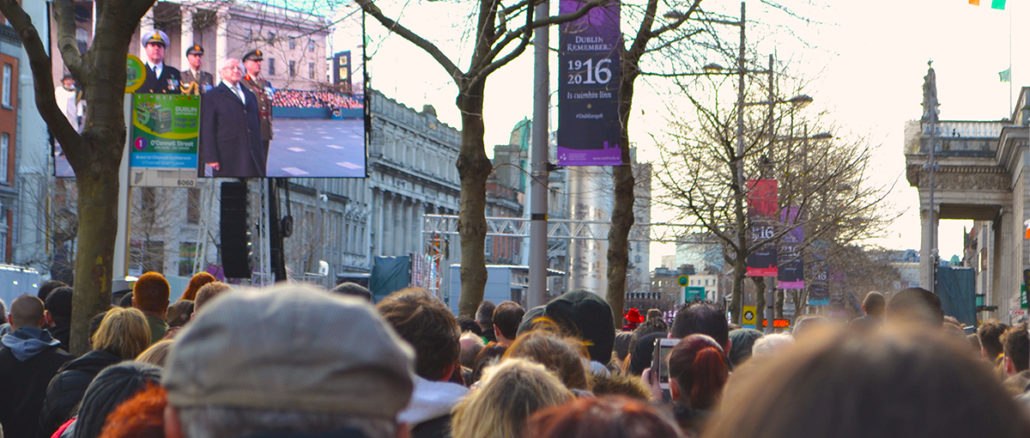
[dropcap]It is[/dropcap] very difficult to comprehend what an eighteen-year-old boy from Carlow was thinking or feeling on a cold winter’s evening in a French trench of war 100 years ago – caught in a devastating and bloody conflict of empires and nestled between the bullets and the bombs of both the British and the Germans, I can only assume and hope that like any soldier, he obeyed his orders with bravery, courage and fortitude.
Private Bernard Jones did not survive the hostilities of that fatal night; young, carefree and a future ahead of him, he lost his precious life. His tragic story was not unique.
29,464 Irishmen died in the First World War and as a country, we are finally opening up to this reality and remembering this lost generation.
“Changed, changed utterly – a terrible beauty is born” is how the events of 1916 were immortalised by the poetic prowess of William Butler Yeats, of course Yeats was referring specifically to the armed insurrection against Ireland’s place in the British Empire at Dublin’s GPO, but I think his lamentation can be applied to the horrors of the Battle of the Somme too.
I worked in Brussels this summer and decided to take a two and a half hour train journey to Paris one Saturday morning – village after village I passed at high speed, the rows of miniature white crosses denoting the dead of the Somme was abundant across the landscape, a sombre reminder of how the physical scars of this war still touch the lives of those who live in these communities.
It was hard not to wonder if one of these villages, Bazentin-Le-Petit, is where the body of the teenage Bernard is buried – what seems like a million miles from the shadow of the Wickow Mountains in Rathvilly, Co. Carlow, where he was born and raised.
Yeats was right to say that the events of 1916 profoundly changed Ireland, it violently reinforced two distinctly different cultural traditions, republican and loyalist. These are two traditions still championed by each side of the communal and sectarian divide in Northern Ireland and traditions that have shaped the narrative of “green” and “orange” in the century since.
The difference between what happened in 1916 and how we commemorate it in 2016, is that the focus is not on blunt ideology, good versus evil or blood sacrifice, but on human life and how the Rising & the Somme affected ordinary people and ordinary families.
“Peace, Perfect Peace – His warfare over, his battle fought, his victory won though dearly bought, his fresh young life could not be saved, he slumbers now in a soldiers grave” is how Bernard’s death is recorded in his local paper; The Nationalist & Leinster Times, a harrowing reminder to all of the mortal price many Irish men payed in 1916 whether fighting for the cause of the republic or the cause of the crown.
Andrew Ralph
Image Credit: Darragh Culhane




Leave a Reply